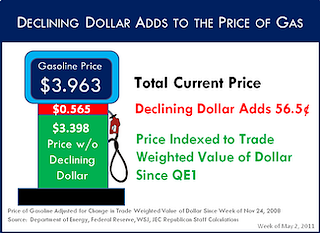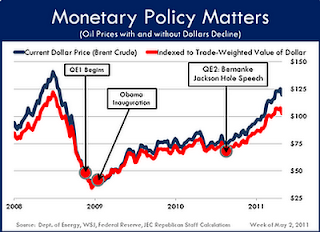 | Republican Study Committee Chairman Rep. Jim Jordan issued the following statement as the federal government hit its legal debt ceiling of $14.294 trillion today:
“Five years ago, when the national debt was $8.2 trillion, then-Senator Obama said raising the debt limit was a ‘sign of leadership failure.’ Today, with the debt nearly 75% higher and trillion-dollar deficits as far as the eye can see, the Obama administration now says it is irresponsible not to raise the debt ceiling.”
“Let’s get one thing straight. Spending trillions more than you take in, that’s irresponsible. Bankrupting your children’s future to avoid today’s tough decisions, that’s failed leadership.” |
“Keeping the debt ceiling at its current level would force Congress to prioritize spending, but it would not force a default on our debt. The only thing forcing a default would be Treasury Secretary Geithner allowing such a catastrophe to take place."
“Conservatives are currently building support behind a ‘Cut, Cap, and Balance’ approach to reduce spending. This plan would cut the deficit in half next year, cap spending at average revenue levels, and send to the states a strong Balanced Budget Amendment. A ‘Cut, Cap, and Balance’ solution will give job creators and the markets a strong message that the Washington is finally getting its fiscal house in order."
“Washington can either cut spending to balance the budget or continue to kick the can down the road. If we don’t choose spending cuts today, the bond markets will eventually and painfully make the choice for us. One way or another, the buck stops here.”
NOTE: The “Cut, Cap, and Balance” plan being advanced by RSC Chairman Jordan and other conservative leaders would:
Cut – Cut the federal deficit in half from this year to next.
Cap – Cap total federal spending at the historical average for revenue intake, 18% of GDP.
Balance – Permanently change the game on spending by sending to the states a Balanced Budget Amendment with strong protections against tax hikes and a spending limitation at 18% of GDP.
###
Congressman Jim Jordan is Chairman of the Republican Study Committee (RSC).
TEXT CREDIT:
House Republican Study Committee 1524 Longworth House Office Building Washington, DC 20515 Phone: (202) 226-9717 Fax: (202) 226-1633
rsc@mail.house.govIMAGE CREDIT: This United States Congress image is in the public domain. This may be because it is an official Congressional portrait, because it was taken by an official employee of the Congress, or because it has been released into the public domain and posted on the official websites of a member of Congress. As a work of the U.S. federal government, the image is in the public domain.













